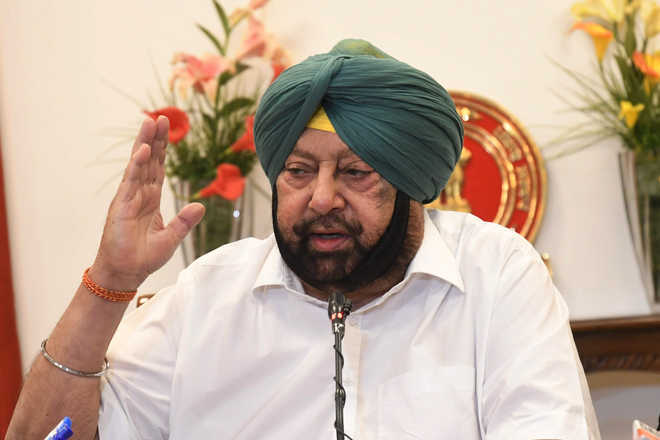PUNJAB CM VIRTUALLY INAUGURATES 50-BED PAEDIATRIC COVID CARE WARD AT LUDHIANA CMC AS HOSPITAL-PPF PARTNERSHIP INITIATIVE

Preparing the state for a possible third wave of the pandemic, Punjab Chief Minister Captain Amarinder Singh on Wednesday virtually inaugurated a 50-bed Paediatric Covid Care Ward, set up at CMC Hospital, Ludhiana, as a partnership initiative between the hospital and the Police Public Foundation (PPF).
On the occasion, a Memorandum of Understanding (MoU) was also signed, in the Chief Minister’s presence, for setting up two Oxygen plants in the district, for which 20 industries have donated Rs 1.2 crore. The two plants will become functional at CMC Ludhiana and Krishna Charitable Hospital within 6-8 weeks, according to CII past president Rahul Ahuja, who signed the MoU on behalf of the industry with the two hospitals. Under the agreement, 20% of Oxygen treatment will be subsidized for poor patients.
Terming the collaborative initiatives of the state’s industry and the civil society, as well as the police, as wonderful gestures, the Chief Minister said the pandemic was a major challenge and the state had to be prepared for the worst. Though nobody knows yet if there will be a third wave in India, Punjab was making all efforts to gear up for another possible surge, which could affect the children more, he added. Captain Amarinder urged the industry to motivate their employees to get vaccinated for their own protection and that of all Punjabis.
Lauding the industry’s stellar role in supporting the state government’s fight against the pandemic, the Chief Minister said the industry in Punjab had always been at the helm of extending a helping hand in every crisis. Vardhman and Oswal industries had helped with Oxygen supplies when cases were at the peak at around 9500+ a day, he recalled. Though the cases had declined to 2184 as of June 1, it was not possible to ascertain how long the crisis will continue, he said, asserting, however, that Punjab will win and come out of this.
The Chief Minister congratulated the Police Public Foundation for the new Covid ward, for which it has provided financial assistance for medical infrastructure, as per the MoU signed by it with CMC Hospital. The hospital has provided space, manpower services, administrative & technical support for setting up of the ward, which is a Level 2 facility. Patients in this ward will be provided treatment at concessional rates, with 20% of the beds have been reserved for the poor and needy patients. The ward is fully functional, and equipped with all the necessary infrastructure – patient beds, cardiac monitors, oxygen concentrators and UPS system. The ward has been completed within a month of signing of the MoU.
The Punjab Police have gone beyond the call of their duty through the pandemic and done a lot of humanitarian work, including distribution of food and the recently launched Bhojan helpline, to ensure that nobody goes to sleep hungry in Punjab, said the Chief Minister.
CMC Director William Bhatti thanked the Ludhiana citizens for once again coming out to help in these testing times, while Chief Secretary Vini Mahajan said the public and industry support, along with the contribution of the private health sector, had proved a major asset in the state’s fight against Covid. Citing supply of 14 ventilators to CMC, she said that the state government extended all help to private hospitals, who, in turn, had provided free treatment to poor patients referred to them by the government.
DGP Dinkar Gupta said the initiative to set up the special ward was taken forward by CP Ludhiana Rakesh Agrawal after an appeal was made by Chief Minister Punjab to leaders of Industry & Business to create quality infrastructure and increase present capacity of hospitals as preparations to tackle any future Covid wave. PPF Senior Vice President Neeraj Satija steered the initiative, along with RN Dhoke, ADGP Enforcement Directorate, who heads PPF, which is a registered Society. The PPF brings the police and the public together by identifying the problems faced by the society and solving them by ensuring the support of both the administration and members of civil society, especially prominent industrialists.
